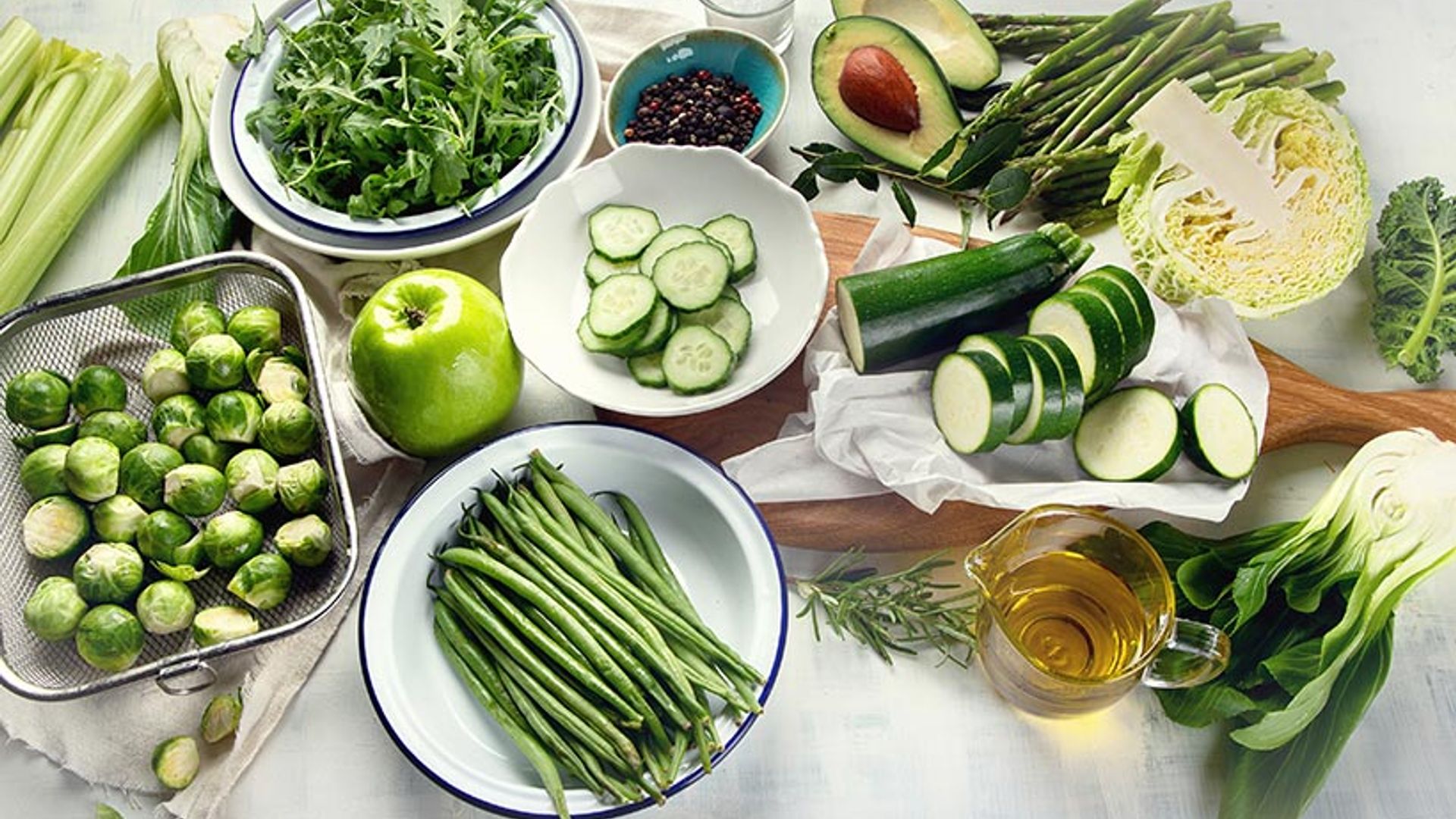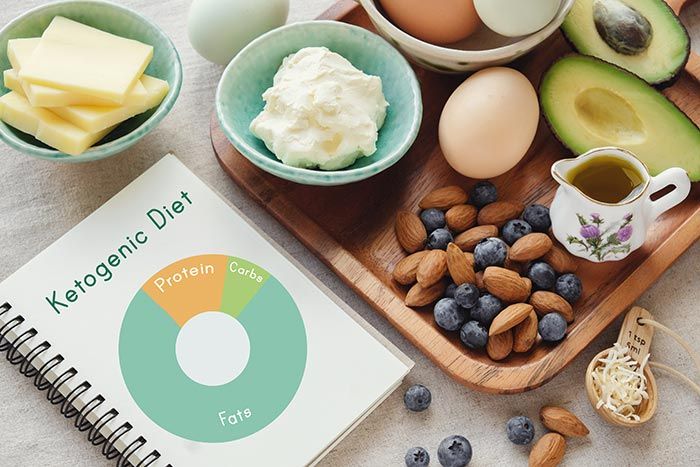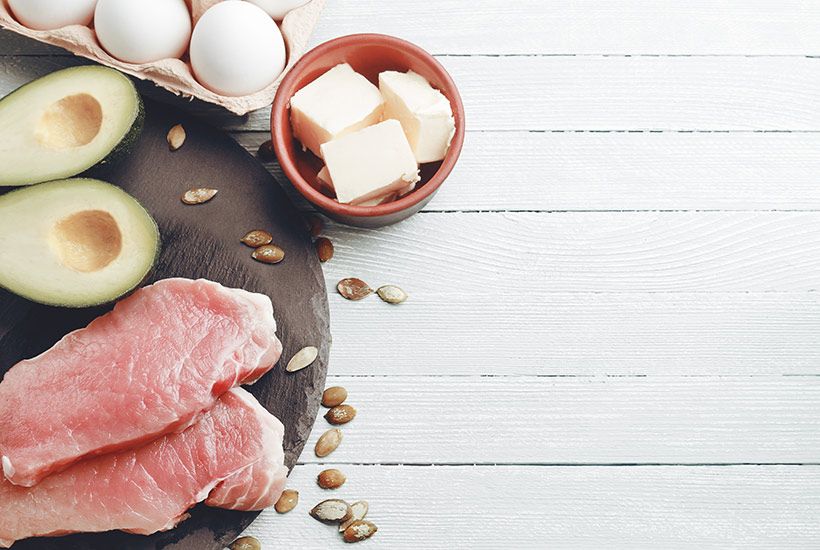If you've picked up any magazine or scrolled through a health blog lately, you will have probably come across the keto diet and its promise of transforming your body. But, what exactly is it and how does it work? We spoke to Nutritionist Resource member Sonal Shah to find out the facts...
What is keto diet?
The Keto diet is a weight loss plan that is based on the principle of a high-fat, low-carb eating plan. 75% of your daily calories are made up of fats, 20% are made up of proteins and just five % are made up of carbohydrates.
This eating system actually triggers a metabolic state in your body known as 'ketosis'. This is a process where your body starts burning fat rather than carbohydrates for energy because it's simply not receiving enough of them. When the body can't get energy from carbs, it converts fatty acids into ketones which are an alternative source of energy. Ketones reduce your appetite and spur weight loss among other things.
READ MORE: See what 'foodie' Meghan Markle eats in a day
What are the different versions of the keto diet?
Standard ketogenic diet
You follow the general rule that 75% of your daily calories are made up of fats, 20% are made up of proteins and just five % are made up of carbohydrates (eating less than 50g of net carbs per day).
Cyclic ketogenic diet
You follow the standard keto diet six days a week, then have a 'carb refeed' on day seven which sees you up your intake of net carbs to 150 grams. This is often followed by people who might have thyroid or sleep issues.
Targeted ketogenic diet
You follow the standard keto diet but eat 30g extra of net carbs before a workout in order to give yourself an energy boost.
Moderate keto diet
You follow a diet high in fats and stick to no more than 100-150g of net carbs per day.
What foods can you eat on the keto diet?
Stock your fridge and cupboards with these keto-approved ingredients…
Vegetables
Go wild for the likes of lettuce, collard greens, salad, avocado, mushrooms, celery, courgette, tomatoes and radishes.
Fruit
Fruit, which is high in carbohydrates (natural sugars), should generally be avoided. However, you can eat a few in limited portions to account for your daily carb count (five per cent of your diet) should you wish. The lowest-carb fruits include blackberries (high in fibre), raspberries and lemons.
Meat
The choice is yours from chicken to beef, lamb to pork, game and veal.
Fish
Aim for fatty/oily fish like salmon, mackerel and sardines as well as white fish and seafood.
Dairy
Stock up on the likes of butter and ghee, cream, eggs and cheese.
Cupboard
Fill it up with the likes of nuts and seeds, olive oil, canned fish, low-sugar condiments, tea and coffee.
What are the benefits of the keto diet?
Currently, the only science-backed evidence is that the keto diet can help epileptic seizures in children - it's actually a method that medical professionals have been using since the 1920s. It's used as an alternative treatment for children who don't respond to medicine.
Studies generally are still premature, with most of them on just a small portion of humans or rats. However, it could be argued that it is an effective weight loss method.
At first, the weight loss will just be water retention however, as you're cutting down on carbohydrates, and therefore refined sugar, it's likely that you will drop actual weight too. This coupled with the fact that research has shown that following the keto diet can result in fewer hunger pangs (typically associated with the come-down after sugar), you're also less likely to binge.
RELATED: The small things you can do every day to be healthier in 2019
What are the risks of it?
It's not an easy diet to follow - especially when socialising or eating out - and therefore there's a risk of yo-yo dieting which disturbs your metabolism and in the long term typically makes people put on weight.
It's also a diet where the main premise is eating fat which in itself can lead to many health problems such as kidney stones, nutritional deficiencies and constipation.
Keto Flu is also a thing. In the first few weeks of following the diet, you will lose a lot of water weight which can shock your body and dehydrate you leading to flu-like symptoms like headaches, chills and fatigue. And not just that. Sonal warns that "symptoms experienced on the diet can include anything from brain fog to nausea to bad-smelling breath, sweat, and urine".
If you are attempting to follow a weight loss plan of any kind, you must consult your GP or medical professional beforehand. Calorie restriction can result in a long-term risk to your health.











